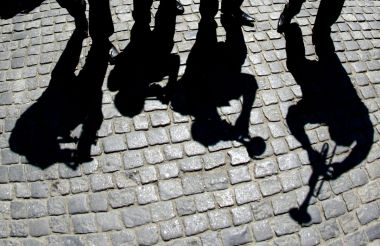Religious people are happier, but more anxious, new research suggests
Religious people are happier but more anxious according to new figures released by the Office for National Statistics (ONS).

The findings emerge from the annual "well-being" research programme measuring the emotional contentment of British people. Now in its fifth year, the survey asks UK citizens to rate their lives on a scale of 0-10.
Although Britons with no faith report lower levels of happiness, life-satisfaction and self-worth than those who do, they also have lower levels of anxiety than religious people.
According to the figures, an average Briton scores 7.53 out of 10 for life satisfaction and 7.38 for happiness.
However those with no religion record their happiness as a slightly below average 7.22 out of 10.
This contrasts to Britons who say they have a faith who typically score above average on happiness ratings. Christians score the highest at 7.47, with Jewish people at 7.37 and Muslims at 7.33.
However different faiths came up with varying ratings for the different questions.
When it comes to having a sense that their life was "worthwhile", Jewish people came top, just above Christians. On "life-satisfaction" Christians and Hindus came joint top. Interestingly, Buddhists come slightly lower in "life-satisfaction" than those with no faith.
Other than in the case of Buddhists' "life-satisfaction" ratings, adherents of major religions consistently scored higher in all areas of well-being than those with no faith.
Yet when it came to anxiety levels, the scores reversed with non-believers rating their anxiety lower than religious proponents.
The figures showed there was a "positive correlation" between religion and contentment, according to Nick Spencer, research director at Theos.
But he added: "You have to recognise that this has nothing to say about the truth of every religious belief just its effect," according to the Telegraph.
"It matches a trend in evolutionary thinking over the last 10 to 15 years which says that religion, having been seen in the 20th Century as a [stage] of progress, is an instinctive aspect of human nature with survival benefits to it."
Professor Linda Woodhead, an expert on sociology of religion at Lancaster University said she found the revelations on anxiety most interesting.
"I am surprised that having no religion appears to make you less anxious," she said.
"Perhaps the most surprising thing is while Buddhism is about coming to terms with suffering and impermanence, Buddhists are actually more anxious and less content.
"That might however be because in his country there are so many white converts to Buddhism."











